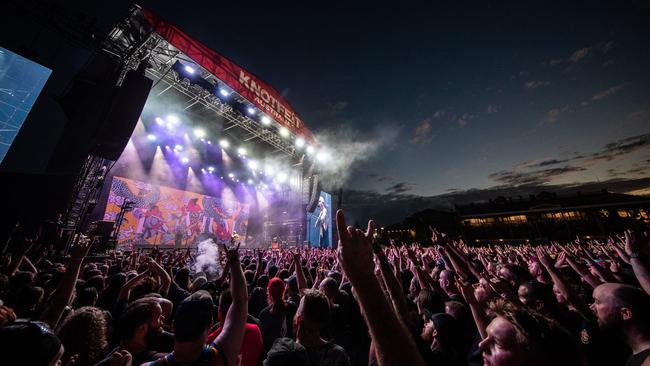Knotfest 2023 review: Slipknot’s heavy metal festival took over Melbourne, Sydney and Brisbane
Black shirts were in abundance, devil horns were raised skyward and heads were banged en masse as about 90,000 heavy metal fans gathered across the weekend for an Australian festival debut.
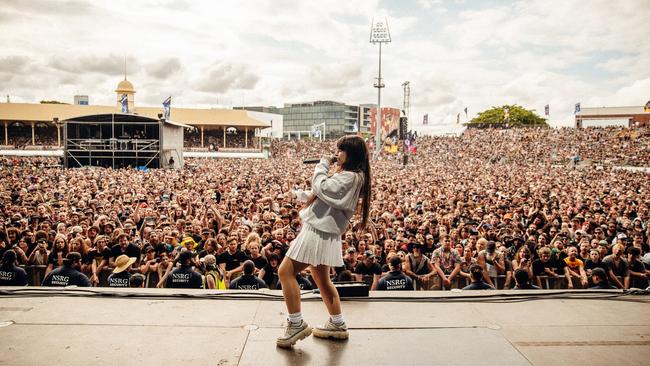
Black shirts were in abundance, devil horns were raised skyward and heads were banged en masse as about 90,000 heavy metal music fans gathered across the weekend for the Australian debut of Knotfest.
Curated and headlined by the mask-wearing nine-piece US band Slipknot, the touring festival visited Melbourne, Sydney and Brisbane on consecutive days.
Local organisers delivered three impressive spectacles befitting Knotfest’s international pedigree, with previous editions held in the likes of Japan, Germany and Mexico.
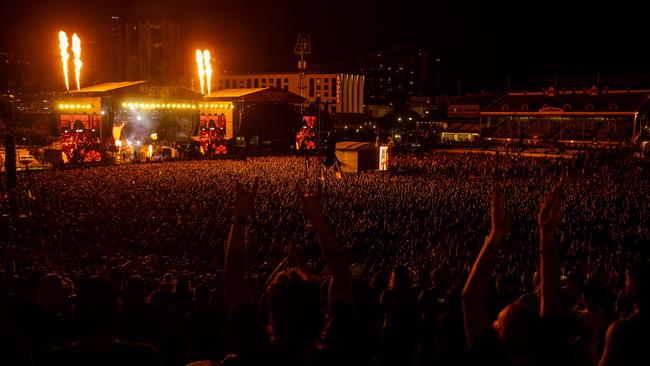
Behind the scenes, the touring festival was a nerve-racking highwire act: with more than 300 people travelling between the three cities, the margin for error with matters of production and logistics is “razor thin”, co-promoter Chris O’Brien told The Australian.
“The production side of things is probably the scariest one, because there’s well in excess of a dozen semi-trailers on the road with that team, who have to leave when the show finishes in Melbourne, then drive overnight to Sydney, and do the same into Brisbane,” said O’Brien, who is general manager of Melbourne-based promoter Destroy All Lines.
“You’ve got to really hope that everything goes to plan, and there’s no incidents, because it’s carrying all the bands’ gear,” he said. “But that’s similar to doing an ‘overnighter’ when you’re doing a concert tour; you’ve just got to hope that everything goes OK, which it generally does.”
That it did: like a great magic trick, the sleight of hand hid its knotty mechanics from view, leaving only a beautifully hair-raising outcome as hundreds of skilled workers flexed their organisational muscles.
At the Brisbane Showgrounds on Sunday, a capacity crowd of about 30,000 fans gathered to watch some of the greatest heavy metal acts from the US (such as Megadeth and Trivium), Sweden (In Flames and Amon Amarth), Canada (Spiritbox) and Australia (Parkway Drive and Northlane).
From the moment gates opened, avid fans rushed to on-site merchandise desks, which were jammed with long queues until sundown. According to O’Brien, the festival sold about $5 million in merch across the three dates, with prices ranging from $55 for a Slipknot T-shirt to $110 per hoodie.
Despite the pure aggression of the music emanating from stage, and the intense moshing and ‘circle pit’ dance arenas that regularly formed mid-crowd, Knotfest’s audience fulfilled the curious live music maxim whereby metalheads are among the friendliest, gentlest and most caring concertgoers you’ll find.
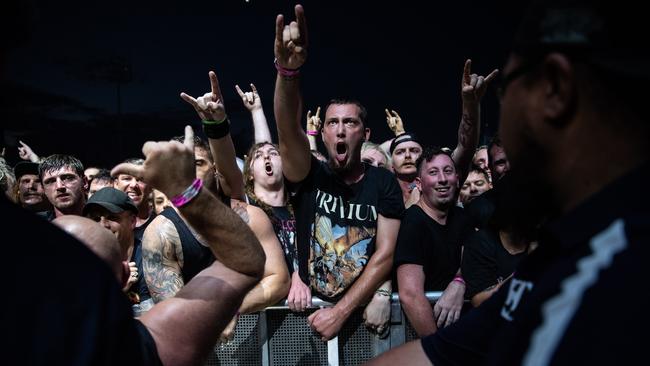
Closing the festival each night was the masked nonet, which showcased material from its seven albums released since 1999, including last year’s chart-topping set titled The End, So Far.
Wielding its trademark blend of concussive brutality and striking melodicism led by singer Corey Taylor, its multi-level stage design included ample flamethrowers as well as beer kegs bashed with baseball bats, amid the usual components of guitars, bass and blitzkrieg drums.
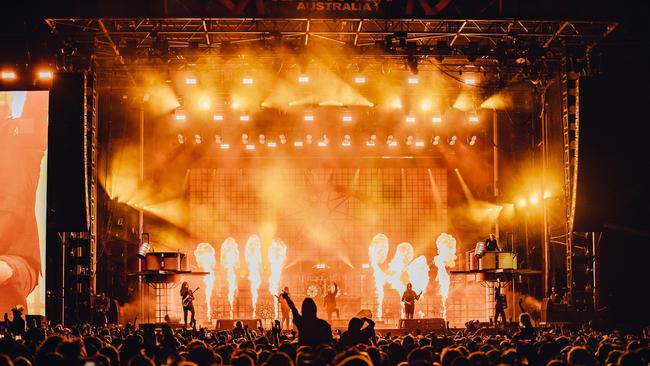
Created in 2012, where it debuted in the band’s home state of Iowa, Knotfest was designed as a celebration of heavy metal music, art and culture.
Although the group curates each line-up, the idea is that Slipknot doesn’t need to play each and every year – yet its Australian headline performance was such a clinic in showmanship that it has set an exceptionally high standard for whichever act is booked to close the festival next time.
More Coverage
